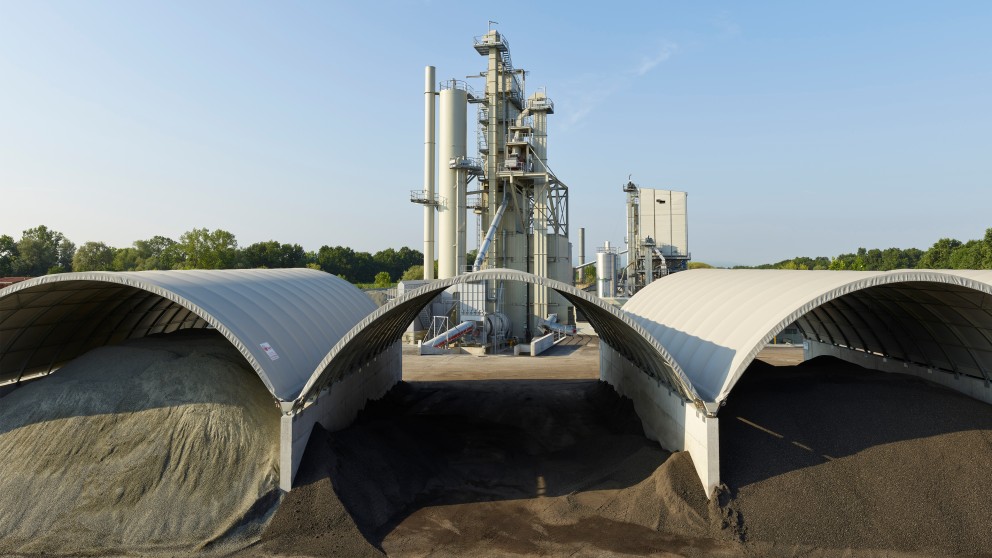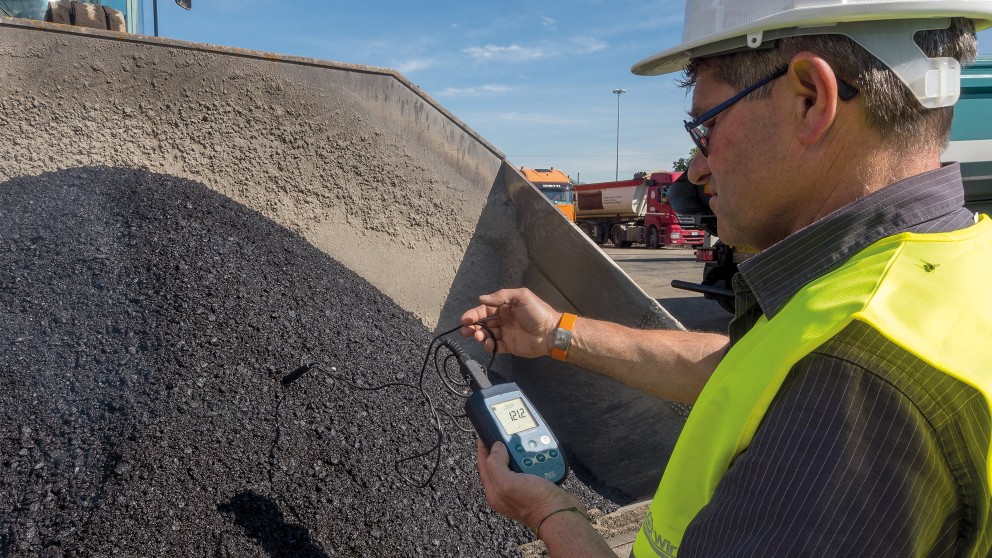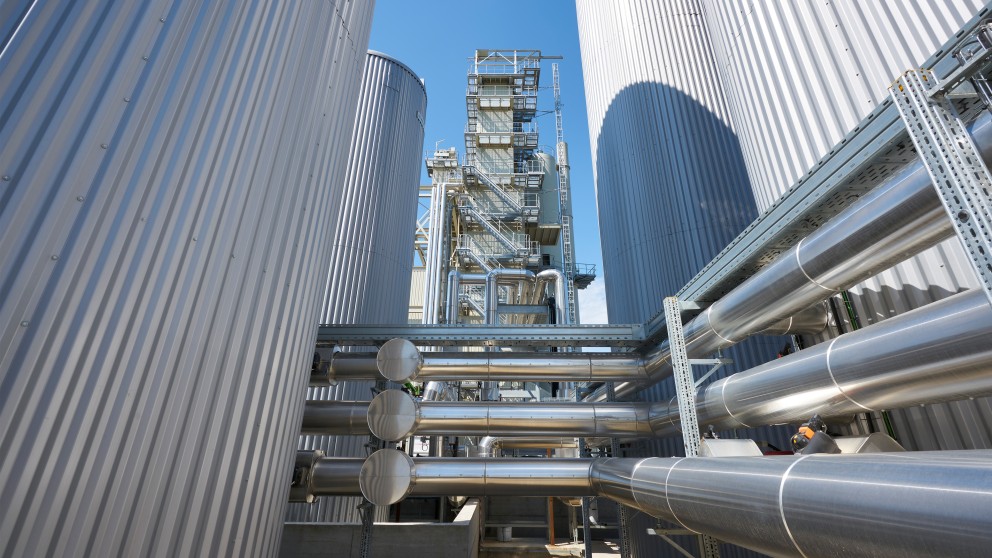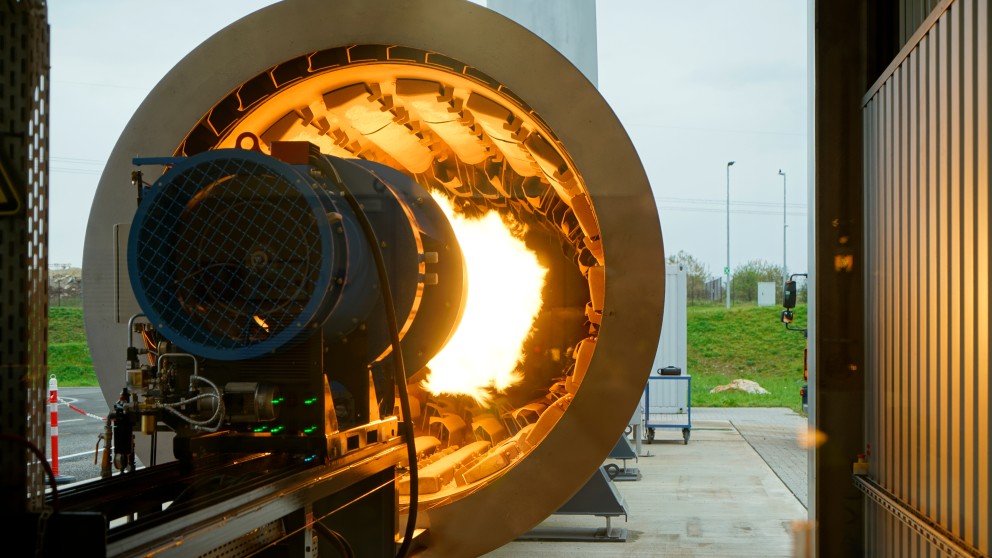Benninghoven | Sustainability in asphalt production


Working more efficiently with sustainable and economical technologies is a challenge that we face, both now and in the future. Solutions from Benninghoven reduce emissions and safeguard the locational competitiveness of asphalt mixing plants.
To increase sustainability in asphalt production, Benninghoven offers a variety of innovative solutions. Looking at the entire road construction process, from the extraction of the materials to the production of the asphalt, right through to the construction of the road, plant operators can save up to 54% of CO₂ emissions. *
Benninghoven's smart solutions include the recycling of asphalt, the proper storage of virgin mineral and recycled material, the use of reduced-temperature asphalt, the electrification of bitumen tanks and the use of renewable energy or fuels of the future.
*(Annual production of 100,000 t of asphalt, 60% RAP feed rate, CO₂-neutral fuel)
Energy-efficient and resource-saving management
Sustainable management and the reduction of emissions harmful to the environment are current challenges in the fight against climate change. For example, the Paris Agreement, adopted in 2015, calls for greenhouse gas emissions to be halved by 2030 and reduced to zero by 2050. The asphalt sector, a comparatively small branch of industry, can also make an important contribution to this, because asphalt production offers great potential for savings when it comes to emissions such as CO₂ and TC (total carbon).
One of the regulatory tools affecting operators of mixing plants is the taxation of emitted CO₂ and emissions trading, the costs of which will continue to rise globally in the coming years. The less greenhouse gases emitted by asphalt mixing plants, the more money can be saved. Benninghoven supports plant operators in this regard with a variety of solutions.
Benninghoven solutions ensure greater energy efficiency and a reduction in the carbon footprint. Greenhouse gas savings of up to 54% of CO₂ per year are feasible.
Component 1: Recycling of asphalt
Benninghoven has decades of experience with recycling reclaimed asphalt. Reusing the material is sustainable, but that’s not the only benefit. The material removed during road rehabilitation by milling the reclaimed asphalt (milled asphalt) is also considerably cheaper than virgin mineral from a quarry. Moreover, the reclaimed asphalt already contains bitumen, which is also reused, thus saving the most expensive ingredient in asphalt production.
Benninghoven offers various cold and hot recycling feed systems for this – including its leading recycling technology, the Benninghoven hot-gas generator. This enables recycling feed rates of up to 100% with low emissions. One patented innovation is the Benninghoven REVOC system, which Benninghoven will introduce for the very first time at Bauma 2022. The new retrofit solution complements existing asphalt mixing plants which are equipped with one or more recycling technologies, and significantly reduces total carbon concentrations in the exhaust gas. In this way, REVOC also makes an important contribution to the safeguarding of locational competitiveness.
Component 2: Proper storage of virgin mineral and recycled material
For an energy-efficient mixing process – resulting in low emissions such as CO₂ – ensuring the driest possible storage of virgin mineral and recycled material is also crucial. In this context: 1% higher moisture content in the source material corresponds to one liter more heating oil or other energy source per ton of asphalt mixture. This is one reason why covered storage is now required in Germany by the Technical Instructions on Air Quality Control (TA-Luft).
Roofed facilities for the dry storage of virgin mineral and recycling material save large quantities of fuel and thus also CO₂ when it comes to drying and heating the material.
Component 3: Production of reduced-temperature asphalt
In asphalt production, the processes of drying and heating virgin mineral and recycled material are particularly energy intensive. Savings in fuel and emissions can be achieved if authorities and plant operators opt for reduced-temperature asphalt. This is the term used to describe asphalt mixtures with a final temperature of around 120 °C or 248 °F. Compared with conventional mixtures, which usually need to be around 160 °C or 320 °F, the reduction is around 30%. However, the potential savings in terms of energy and CO₂ are far greater: 18,000 kWh and 6,000 kg (13,228 lb) of CO₂ are saved in the production of 2,000 t of asphalt – on a daily basis.
Benninghoven asphalt mixing plants can also produce reduced-temperature asphalt reliably and in high quality. An important technology for this involves the use of a foam bitumen module, which Benninghoven also offers as a retrofit solution. Foam bitumen is of interest because, to produce reduced-temperature asphalt, this binder only requires the addition of water, which is available at every asphalt mixing plant anyway. Mixing hot bitumen with water increases the volume many times over; this is also referred to as bitumen foaming. Due to the surface energy released, the binder wets the aggregate very thoroughly during the mixing process, even at lower temperatures, and temporarily produces paving properties comparable to those of hot mix asphalt.
Reduced-temperature asphalt offers a high potential for reducing energy and CO₂ levels: its main contribution lies in the production process, i.e. in a Benninghoven asphalt mixing plant featuring the appropriate technologies for this.
Component 4: Electrification of bitumen tanks
For the storage of hot bitumen, one of the key ingredients of asphalt, Benninghoven offers bitumen tanks of varying capacities. These are designed with one or more chambers and can also be equipped with an agitator or a mixing nozzle.
With electrification, the operation produces zero local emissions – in contrast to tanks with thermal oil heating. In terms of the carbon footprint, this ensures CO₂-neutral storage of bitumen. Electrically heated tanks are also not regulated by environmental authorities, so there are no environmental requirements.
Roofed facilities for the dry storage of virgin mineral and recycling material save large quantities of fuel and thus also CO₂ when it comes to drying and heating the material.
Component 5: Use of renewable energies
More sustainability in asphalt production means moving away from fossil fuels such as coal and oil. Benninghoven already offers EVO JET burners which use fuels of the future. These fuels consist of renewable raw materials and have a CO₂-neutral footprint. They include liquefied biomass (BtL, biomass to liquid) and wood dust. Even when burning wood dust, which is a technically challenging process, the result is an uninterrupted flame pattern – which is essential for reliable plant operation. With its innovative solutions, Benninghoven is setting new standards in burner technology.
Benninghoven technology can also be used for modern fossil gaseous fuels such as liquid gas or natural gas. Just switching from pulverized lignite to natural or liquid gas cuts CO₂ emissions in half.
Moreover, Benninghoven's development engineers are continuing to work hard on being able to use additional energy sources sustainably and economically. The use of hydrogen could therefore be an option to meet the increasing challenges of the future.
Already making use of renewable fuels: Benninghoven EVO JET burners can also burn liquefied biomass (BtL) or wood dust.
Public Relations
Reinhard-Wirtgen-Straße 2
53578 Windhagen
Germany





